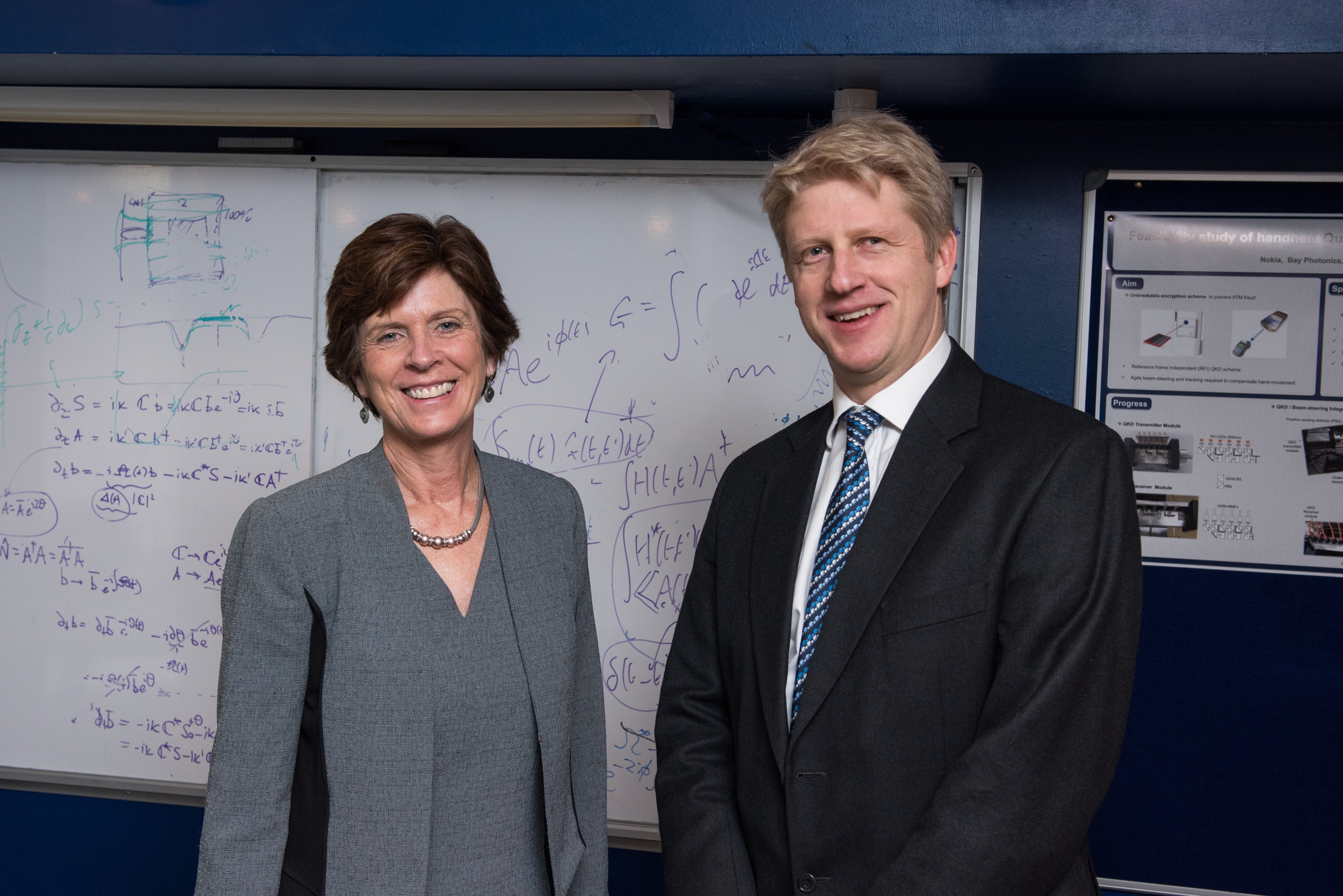Oxford University is to receive £13.5 million from the Government to support DPhil students in engineering and physical sciences, as well as significant funding geared towards boosting the UK's research into quantum technologies.
The Universities and Science Minister, Jo Johnson, made the announcement during a visit to Oxford, where he saw first-hand the world-leading research being carried out at the University.
Oxford's funding is part of a national investment in science totalling £204 million – £167 million for Doctoral Training Partnerships involving 40 universities and £37 million as part of the UK's National Quantum Technologies Programme.
During his visit to Oxford, Mr Johnson was shown laboratory and workshop facilities, and met doctoral students, in the University's Networked Quantum Information Technologies (NQIT) Hub and Mobile Robotics Group.
Mr Johnson said: 'We are committed to securing the UK's position as a world leader in science and innovation. The Government is ensuring major new discoveries happen here, such as the creation of super-powerful quantum computers which scientists are working on in Oxford. This new funding builds on our protection for science spending by supporting research in our world-leading universities and helping to train the science leaders of tomorrow.'
As well as £13.5 million for doctoral places across engineering and the physical sciences, Oxford will receive a share of £25 million for strategic capital investment in quantum technologies. Led by Professor Andrew Briggs, the Oxford project receiving capital funding will investigate ways of developing simulation tools for quantum systems, helping ensure that these complex technologies are not corrupted by environmental or external disturbances such as magnetic fields.
Professor Louise Richardson, Vice-Chancellor of the University of Oxford, said: 'Quantum technologies promise to revolutionise the way we live our lives. At Oxford we stand at the forefront of this revolution through our world-class research and training programmes. It is a pleasure to welcome the Minister to Oxford to announce support for this key research area, as well as significant funding for doctoral places in engineering and physical sciences that will help us continue to train the leading scientists of the future.'
Professor Ian Walmsley, Hooke Professor of Experimental Physics, NQIT Hub Director, and Pro-Vice-Chancellor (Research and Innovation) at the University of Oxford, said: 'Quantum technologies will deliver novel sensors, secure communications and advanced computing that are impossible with conventional technologies. This radical reconnection of the information processing landscape will also deliver benefits to society, and to the UK economy, through highly skilled and knowledgeable graduate students who work at the cutting edge of the field and are able to translate quantum science into applications through new technologies.'
The funding will be distributed via the Engineering and Physical Sciences Research Council (EPSRC). Professor Philip Nelson, Chief Executive of EPSRC, said: 'This year we are allocating £167 million to universities via Doctoral Training Partnerships (DTPs). These will cover a two-year period and will give institutions greater certainty and increased time to plan their DTP programmes and support excellent doctoral students. In addition, we are investing in training and providing capital for research to ensure that the National Quantum Technologies Programme can make the most of the country's research talents. These strategic investments will help science push at the boundaries and make discoveries that are taken through into innovations.'
